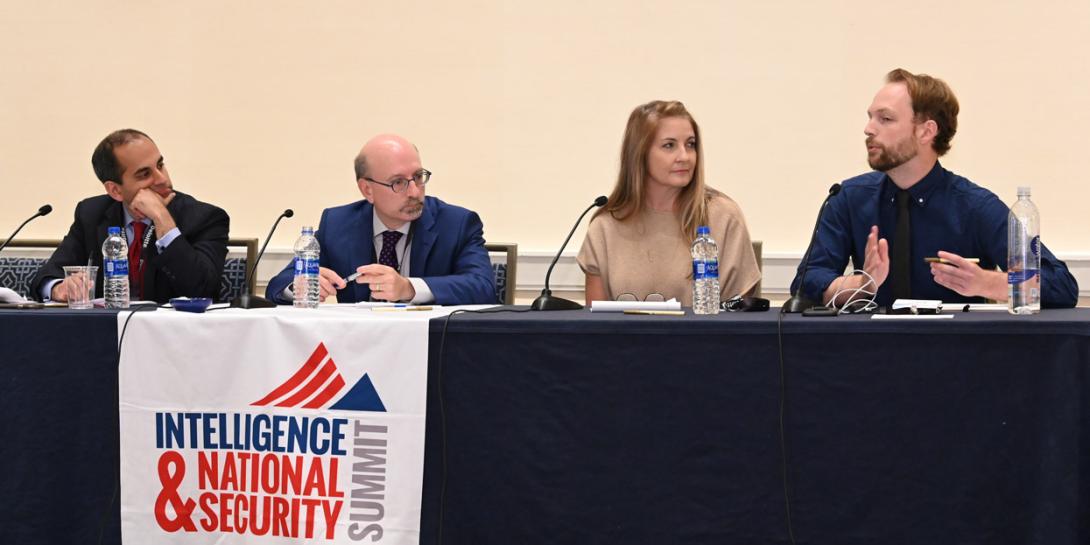Cyber-Driven Disinformation Is Here to Stay
Foreign countries are likely to continue their cyber-based disinformation campaigns as an inexpensive way of shaping thinking in democracies, according to a panel of experts at the AFCEA/INSA Intelligence & National Security Summit on September 5. Only a concerted effort by government, the commercial sector and the public can blunt its effects, especially as the 2020 elections loom.
“Disinformation is not the weaponization of knowledge, it’s the weaponization of cognition,” declared Brett Horvath, president, Guardians.ai. “To have a coherent strategy, it has to be built on principles: What are you defending, and what are you attacking?”
Disinformation is not the weaponization of knowledge, it’s the weaponization of cognition.—Brett Horvath, president, https://t.co/3rwdaX1e08 @bretthorvath #IntelSummit19
— Bob Ackerman (@rkackerman) September 5, 2019
He also called for greater action between government and industry and criticized companies that eschew working for U.S. national security efforts. “If we’re not building bridges between government and industry, it’s as if in World War II Boeing would not answer FDR’s call,” he analogized.
Sujit Raman, associate deputy attorney general, Department of Justice, stated, “Disinformation is important, but it’s just one subset of a broader element by adversaries.” He added that hacking can help foreign adversaries use disinformation for their own purposes.
Disinformation is important, but it’s just one subset of a broader element by adversaries.—Sujit Raman, associate deputy attorney general, DOJ @DUSAJusticeDept #IntelSummit19
— Bob Ackerman (@rkackerman) September 5, 2019
All the panelists discussed the upcoming 2020 U.S. presidential election. “For 2020, there are more actors on the battlefield, both in the public and private sectors,” Horvath said. Daniel Kimmage, principal deputy coordinator, Global Engagement Center, State Department, said, “For 2020, we’re going to see a proliferation of tools that are getting better and better,” referring to adversaries’ assets.
For 2020, we’re going to see a proliferation of tools that are getting better and better.—Daniel Kimmage, principal deputy coordinator, Global Engagement Center, State Department @StateDept #IntelSummit19
— Bob Ackerman (@rkackerman) September 5, 2019
A more positive note was struck by Suzanne Kelly, CEO, The Cipher Brief. “For 2020, we are going to be a lot more aware than we were in 2016.”
[On disinformation in the election] For 2020, we are going to be a lot more aware than we were in 2016. —Suzanne Kelly, CEO, The Cypher Brief #IntelSummit19
— Bob Ackerman (@rkackerman) September 5, 2019





Comments